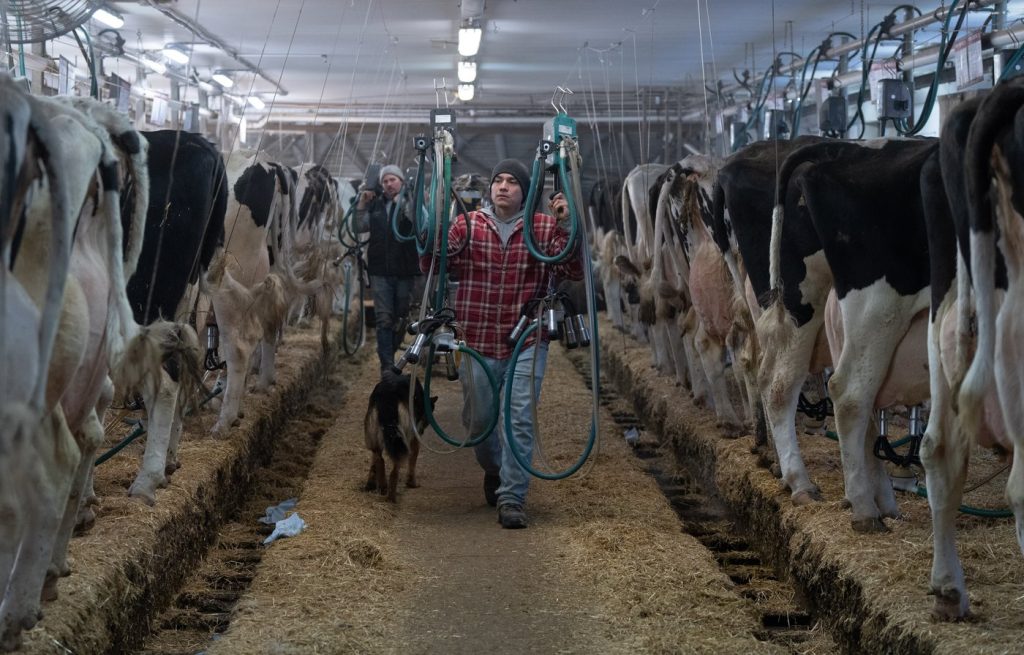A new Canadian law aimed at protecting supply management is unlikely to shield the system from renewed U.S. trade pressure, particularly under a Trump-led administration determined to dismantle it, trade experts caution.
Trade lawyer William Pellerin of McMillan LLP says the legislation complicates negotiations by restricting Canada’s flexibility. “We’re negotiating with one hand tied behind our back,” he said. “With the digital services tax now withdrawn, dairy and supply management are the top unresolved irritants in U.S.-Canada trade relations.”
Former President Donald Trump, who recently paused trade discussions with Canada over the digital tax, openly targeted Canada’s supply management system. In a social media post, he accused Canada of imposing tariffs as high as 400 percent on U.S. dairy products—a claim rooted in long-standing tensions over tariffs Canada applies on imports exceeding CUSMA quota limits.
Bill C-202, passed by Parliament and granted royal assent on June 26, was heralded by the Bloc Québécois as a major win for Quebec farmers. The law restricts Canada’s foreign affairs minister from negotiating increases to import quotas or reductions in tariffs that protect domestic dairy and egg producers. But experts argue the law isn’t ironclad.
Pellerin notes that the government could still circumvent the legislation. One option could be for Prime Minister Mark Carney to conduct trade negotiations himself, bypassing Foreign Affairs Minister Anita Anand. Carney had previously dismissed the need for the law but promised to keep supply management off the table during talks with the U.S.
Another workaround could involve expanding the types of businesses allowed to access Canada’s dairy import quotas. Pellerin explains that enabling grocery chains or other retailers to import U.S. dairy products could appease American demands without technically breaching the new law.
Philippe Lagassé, a Carleton University professor and expert on constitutional law, emphasized that the legislation does not override the royal prerogative—the executive’s authority to manage foreign affairs. “There’s no binding language constraining the Crown,” he said. “If the government believes it’s bound, then politically, it is. But legally, it may not be.”
Even if the law is respected, Lagassé points out, a future trade agreement would require new enabling legislation. “This bill adds hurdles, not a wall,” he said.
Trade lawyer Mark Warner agrees. He believes Parliament could repeal or override the law if necessary to secure concessions elsewhere, such as preserving Canada’s auto industry. “No U.S. trade official would take a claim like ‘we can’t negotiate because of Parliament’ seriously,” Warner said.
Despite repeated U.S. pressure, dismantling supply management outright has remained politically untenable in Canada. Warner predicts any move to do so would face intense political blowback, court challenges, and resistance from provincial governments. “You’d have people protesting, highways blocked, the Bloc obstructing Parliament—there’s a real political cost,” he said.
Still, some experts believe compromises are possible. “The system won’t be dismantled, not in the foreseeable future,” said Pellerin. “But we may see incremental adjustments—new quota allocations, reduced tariffs for over-quota imports, or expanded importer eligibility.”
The U.S. Trade Representative continues to express concern over how Canada applies quota rules and prices specific milk products under CUSMA. Former Canadian diplomat Louise Blais believes there’s room for flexibility if Canada aligns with the “spirit” of the agreement as interpreted by the U.S.
“There’s a middle ground,” Blais said. “We always jump to the conclusion that it’s all or nothing—but that’s rarely the case in diplomacy.”

